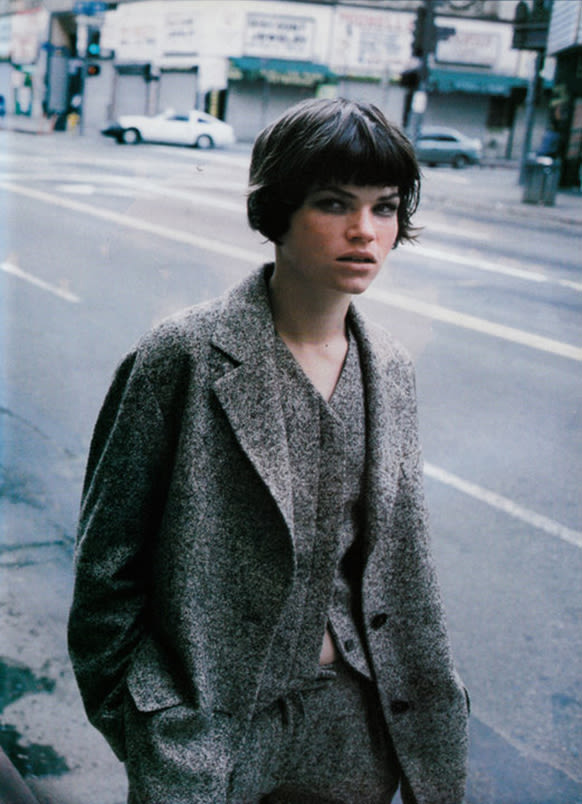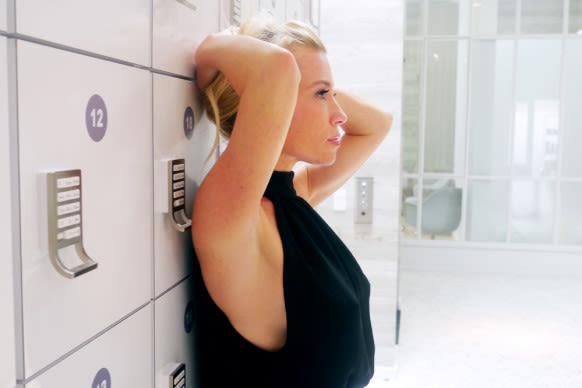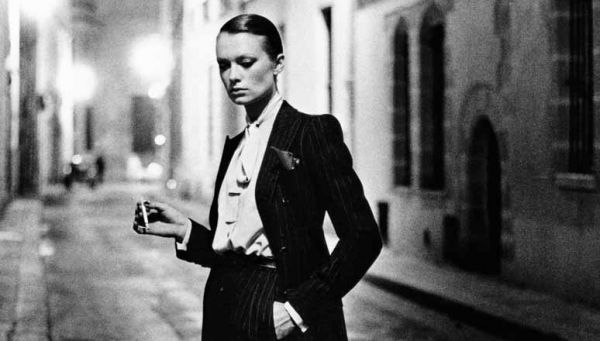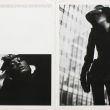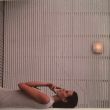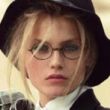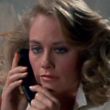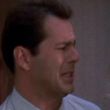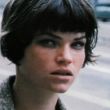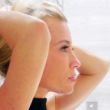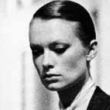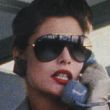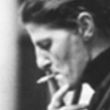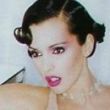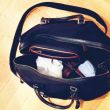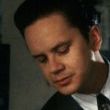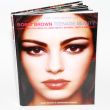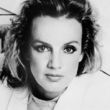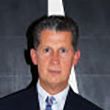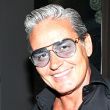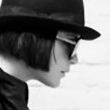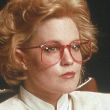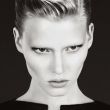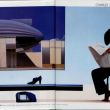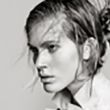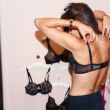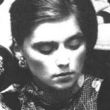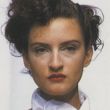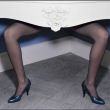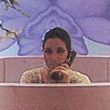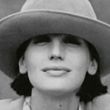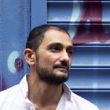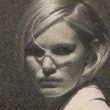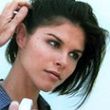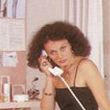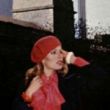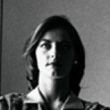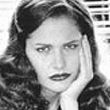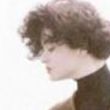When to beg for it, how to dress for it, how to sleep for it, and why hearing and saying “no' is a good thing: 2013's best career advice...
Getting there
Amy Odell: “I learned early on that you really have to beg for work. I tell people this all the time and I don’t see it happening that much, but if you’re serious about being a writer and a reporter, you have to beg for work. I think it’s the same way if you want to have any desirable creative or fashion-minded job—a stylist, a photographer—you have to beg. I just stopped being shy about that aspect of it, and it's worked. It’s not a bad skill to learn, how to beg in an effective way.” [The Top Shelf: Amy Odell, Writer & Editor]
Robbie Myers: “It’s interesting—the fashion business takes women who wear no makeup very seriously, which I think is kind of great. If you look at what you’d call the more ‘senior’ members of the fashion class, they don’t wear a ton of makeup. So... do you have to wear makeup to be taken more seriously? No. It’s just a matter of what your look is and how you feel about it.” [The Top Shelf: Robbie Myers, Editor in Chief, Elle]
Stina Wäppling: “The guys in the band, Tobias [Astma Jimson] and Michel [Rocwell], came up with the name NONONO, which is about saying ‘no’ to projects when your heart isn’t in it. It’s really important to make active choices in life. It leaves space for the things you really want to do. It’s our little motto... I’ve been thinking about getting it as a tattoo.” [The Top Shelf: Stina Wäppling, Singer, NONONO]
Kelly Wearstler: “Hearing ‘no’ can be good. If you’re always told ‘yes’ you can’t grow.” [Dramatically Different: Kelly Wearstler, Designer]
Jessica Diehl: “I was working as an illegal bartender—I wasn’t 21 yet—and one day I met a market editor at American Marie Claire, which at the time was run by Glenda Bailey. She came in to the bar I worked at and she looked super glamorous—she ordered Merlot, and this was during the hype of Merlot. She was by herself, reading a fashion-show schedule, drinking by herself, which should’ve been a sign that working in fashion can be exhausting. So I just said to her, ‘You know, I really want to work at a magazine. Do you work at a magazine? Do you work in fashion?’ and she was so snobby and kind of like ' Why are you even talking to me, you’re a bartender,' but then she warmed up and she gave me an internship.” [The Professional: Jessica Diehl, Fashion & Style Director, Vanity Fair]
Emily Schuman: “During my senior year, I decided that I wanted to work at Condé Nast—I didn’t even think of having a backup plan. I looked at their journalistic integrity, the quality of their photographs, and I was just like, 'This is where I want to be.’ So I went through the magazines’ mastheads, called the LA office and said, ‘I would love to meet with the HR director.’ I didn’t have a car at the time, so even getting from Claremont to LA involved walking to the bus station, taking the Metro Link in, then the subway, then a bus, and then I walked the rest of the way. [Laughs] It was bananas how much determination I had. Even now I’m like, ‘Oh god, if I couldn’t valet my car I probably wouldn’t do it.’' [Laughs] [The Professional: Emily Schuman, Cupcakes and Cashmere]
Tom Pecheux: “The beauty school I went to gave us a list of products to buy, like eyeliner and blush, and I was like, ‘What’s that?’ I didn’t even know! On the first day, we had to apply makeup to another student and I'd never done it before, so I just did what I had seen my mother do—I put two dots of lipstick on her cheeks and blended it with my finger. I still remember my teacher screaming at me. After a few months, the school director said to me that I was never going to make it as a makeup artist because I didn’t have ‘the look.’ I remember paying attention to clothes, but I wasn’t the trendiest guy in the world—I’m still not. But I think when people say that kind of a thing to you, it makes you fight even more.” [The Professional, Tom Pecheux, Makeup Artist]
Staying there
Jessica Diehl: “I’m very straightforward, which I think has been a downfall of, and a contribution to, my success. Some people don’t like straightforwardness, especially bosses—bluntness can be misinterpreted as being insubordinate or being too opinionated, and that’s definitely something that’s mellowed in me over the years. You can still be honest, but the delivery is part of the responsibility you take on when you choose to be that way; you can’t just slap people over the head with the truth.” [The Professional: Jessica Diehl, Fashion & Style Director, Vanity Fair]
Tracy Anderson: “I make sure to protect my intention for why I’m doing what I’m doing, and maintain focus on authenticity. I really believe that the second you let go of that for a price tag or something, you’re screwed.” [The Professional: Tracy Anderson, Fitness Entrepreneur]
Arianna Huffington: “When I fainted from exhaustion several years ago, I used that moment both to correct my own life and then, of course, to evangelize about sleep. I actually gave a TED Talk called ' How To Sleep Your Way to the Top—Literally.' It’s really about redefining success, which, for me, started with rediscovering sleep. I was getting three to four hours of sleep before and now I’m getting seven to eight. I look different, I feel different. I’m much more effective. It started with sleep, and that’s still a big part of it, but now I’m also interested in how you can reduce stress throughout the day. When we are more centered, we notice that a lot of the decisions we make affect the business: who you hire, who you let go, what you prioritize...All of these decisions are often made out of stress and exhaustion, and they’re wrong.” [The Top Shelf: Arianna & Christina Huffington]
Oribe: “I don't think I'm all that, which makes it great. I fuck up all the time. That is what keeps me going, that is what keeps it exciting. I'm my harshest critic. My dad told me, 'Never say you don't know how to do it—just try it.' And I always did. I push and work on something until I get it right. You can’t be afraid to go for it. And I certainly come prepared; that’s why I travel with twenty bags. I have an amazing assistant. [Laughs] Sure, I’ve made mistakes, like canceling on John Galliano the day of his show, but you can’t stop and freak out. I’m a positive guy, and a big believer that you can do anything you want as long as you can imagine it. If you won't dream, it won't come true.” [The Professional: Oribe, Hairstylist]
Laura Mercier: “When I was starting my line, I said, ‘I want to be behind it; I don’t want to put my name on something that’s going to be done badly and it’s a bunch of colors that go out there and I have nothing to do with that.’ I said I had to have in the contract that I must be behind the product. I want to be in the lab and I want to be with a chemist, and I want to formulate my product.” [The Professional: Laura Mercier]
Alice Gregory: “I’m always trying to find ways to regiment myself. Like, I recently downloaded an app called Freedom, which disables your Internet for a period of time, so you can't get distracted. But, if I need to Google things for work, I like the Waste No Time browser, which you can personalize. For example, if I go on Twitter, it says: ‘Shouldn’t you be working?’” [The Top Shelf: Alice Gregory, Writer]
Tom Pecheux: “I feel very lucky, because not many people in the world can say that they wake up every morning and love what they do. I’ve been doing makeup for 29 years, and I could never give up on it. It has changed a lot—the backstage is so different now. Fifty percent of my work is doing interviews with journalists. But it’s part of my job, and I’m part of the industry, so I need to be thankful for it. This world is not perfect, but I’m not perfect either. Some days are going to be harder than others. I don’t want to stop, I want to carry on doing the same job in a different way.” [The Professional: Tom Pecheux, Makeup Artist]
